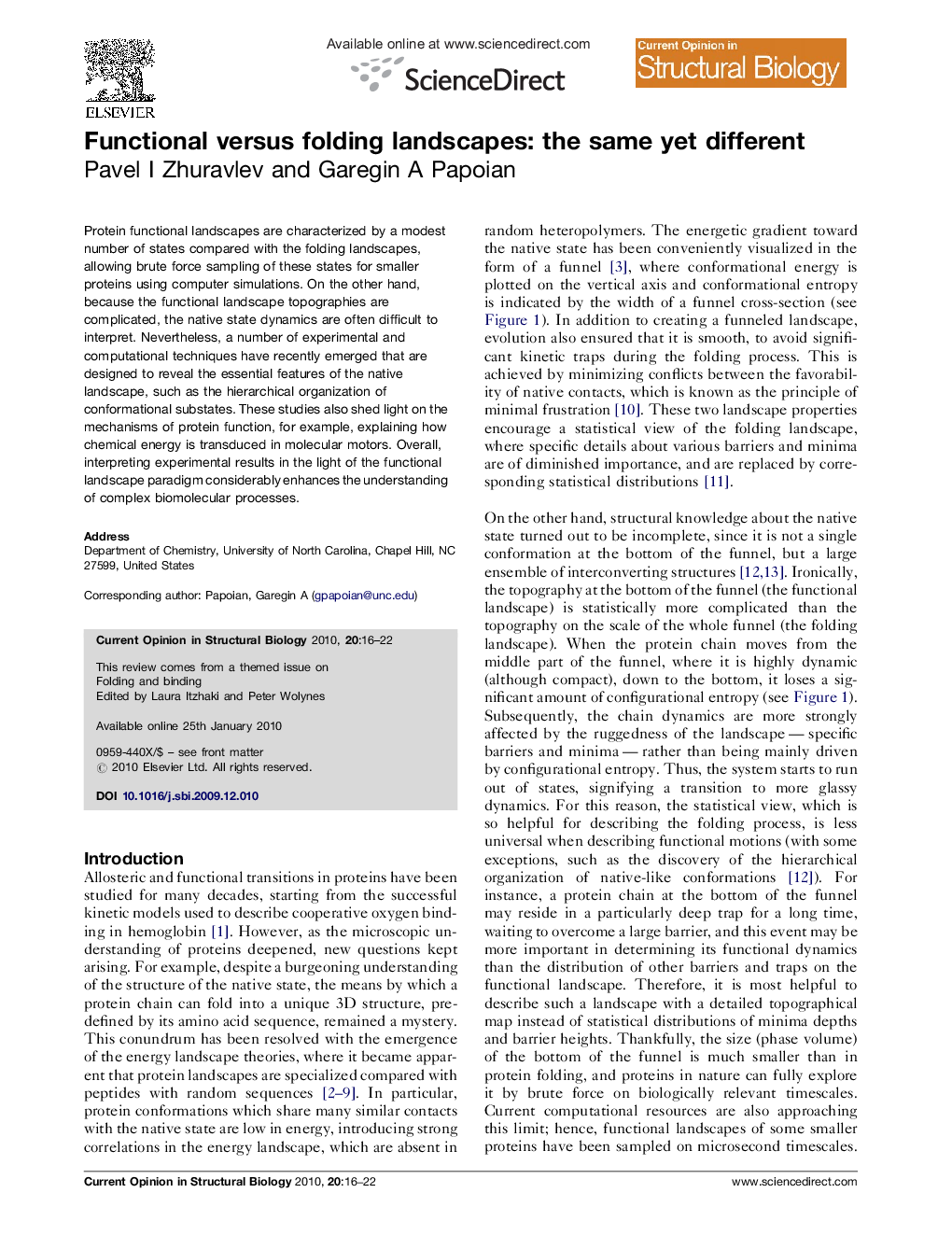| Article ID | Journal | Published Year | Pages | File Type |
|---|---|---|---|---|
| 1979480 | Current Opinion in Structural Biology | 2010 | 7 Pages |
Abstract
Protein functional landscapes are characterized by a modest number of states compared with the folding landscapes, allowing brute force sampling of these states for smaller proteins using computer simulations. On the other hand, because the functional landscape topographies are complicated, the native state dynamics are often difficult to interpret. Nevertheless, a number of experimental and computational techniques have recently emerged that are designed to reveal the essential features of the native landscape, such as the hierarchical organization of conformational substates. These studies also shed light on the mechanisms of protein function, for example, explaining how chemical energy is transduced in molecular motors. Overall, interpreting experimental results in the light of the functional landscape paradigm considerably enhances the understanding of complex biomolecular processes.
Related Topics
Life Sciences
Biochemistry, Genetics and Molecular Biology
Biochemistry
Authors
Pavel I Zhuravlev, Garegin A Papoian,
